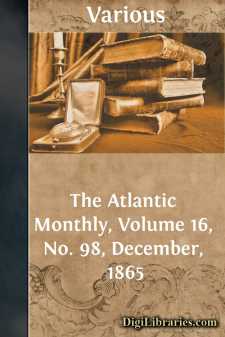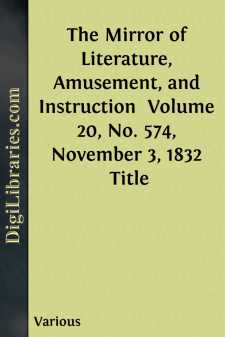Categories
- Antiques & Collectibles 13
- Architecture 36
- Art 48
- Bibles 22
- Biography & Autobiography 815
- Body, Mind & Spirit 144
- Business & Economics 28
- Children's Books 18
- Children's Fiction 14
- Computers 4
- Cooking 94
- Crafts & Hobbies 4
- Drama 346
- Education 58
- Family & Relationships 59
- Fiction 11833
- Games 19
- Gardening 17
- Health & Fitness 34
- History 1378
- House & Home 1
- Humor 147
- Juvenile Fiction 1873
- Juvenile Nonfiction 202
- Language Arts & Disciplines 89
- Law 16
- Literary Collections 686
- Literary Criticism 179
- Mathematics 13
- Medical 41
- Music 40
- Nature 179
- Non-Classifiable 1768
- Performing Arts 7
- Periodicals 1453
- Philosophy 65
- Photography 2
- Poetry 896
- Political Science 203
- Psychology 44
- Reference 154
- Religion 515
- Science 126
- Self-Help 85
- Social Science 82
- Sports & Recreation 34
- Study Aids 3
- Technology & Engineering 59
- Transportation 23
- Travel 463
- True Crime 29
Our website is made possible by displaying online advertisements to our visitors.
Please consider supporting us by disabling your ad blocker.
The Atlantic Monthly, Volume 16, No. 98, December, 1865
by: Various
Categories:
Description:
Excerpt
CHAPTER I
"Then I say, once for all, that priest shall never darken my doors again."
"Then I say they are my doors, and not yours, and that holy man shall brighten them whenever he will."
The gentleman and lady, who faced each other pale and furious, and interchanged this bitter defiance, were man and wife, and had loved each other well.
Miss Catharine Peyton was a young lady of ancient family in Cumberland, and the most striking, but least popular, beauty in the county. She was very tall and straight, and carried herself a little too imperiously; yet she would sometimes relax and all but dissolve that haughty figure, and hang sweetly drooping over her favorites; then the contrast was delicious, and the woman fascinating.
Her hair was golden and glossy, her eyes a lovely gray; and she had a way of turning them on slowly and full, so that their victim could not fail to observe two things: first, that they were grand and beautiful orbs; secondly, that they were thoughtfully overlooking him, instead of looking at him.
So contemplated by glorious eyes, a man feels small and bitter.
Catharine was apt to receive the blunt compliments of the Cumberland squires with this sweet, celestial, superior gaze, and for this and other imperial charms was more admired than liked.
The family estate was entailed on her brother; her father spent every farthing he could; so she had no money, and no expectations, except from a distant cousin,—Mr. Charlton, of Hernshaw Castle and Bolton Hall.
Even these soon dwindled. Mr. Charlton took a fancy to his late wife's relation, Griffith Gaunt, and had him into his house, and treated him as his heir. This disheartened two admirers who had hitherto sustained Catharine Peyton's gaze, and they retired. Comely girls, girls long-nosed, but rich, girls snub-nosed, but winning, married on all sides of her; but the imperial beauty remained Miss Peyton at two-and-twenty.
She was rather kind to the poor; would give them money out of her slender purse, and would even make clothes for the women, and sometimes read to them: very few of them could read to themselves in that day. All she required in return was, that they should be Roman Catholics, like herself, or at least pretend they might be brought to that faith by little and little.
She was a high-minded girl, and could be a womanly one,—whenever she chose.
She hunted about twice a week in the season, and was at home in the saddle, for she had ridden from a child; but so ingrained was her character, that this sport, which more or less unsexes most women, had no perceptible effect on her mind, nor even on her manners. The scarlet riding-habit and little purple cap, and the great, white, bony horse she rode, were often seen in a good place at the end of a long run; but, for all that, the lady was a most ungenial fox-huntress. She never spoke a word but to her acquaintances, and wore a settled air of dreamy indifference, except when the hounds happened to be in full cry, and she galloping at their heels....












